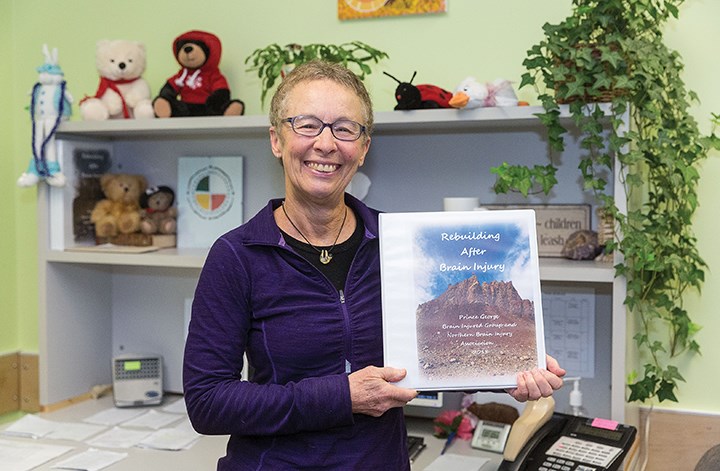Having a brain injury and not understanding the effects it has on your whole body is like being thrown into a deep dark hole and left for dead.
This is why the educational programming at BIG (Brain Injured Group) is so valuable for brain-injured survivors in their journey towards healing and recovering.
There are many symptoms that survivors experience, especially in the first two years after injury. Being exhausted all the time, not having an appetite, having sensitivity to light and noise, not being able to keep a thought in your head, experiencing difficulties with depth perception, feeling like you're in a constant state of confusion and upset. The list goes on and on.
If survivors don't know that these symptoms are normal effects of brain injury, it will make life unbearable and hopeless.
Vicki Shepherd is a registered nurse and the program director at BIG. She has been with the organization for over 25 years. She began her work at BIG caring for residents at the organization's group home. These residents require 24-hour care and supervision due to the severity of their brain injuries.
Vicki eventually moved over to BIG's office and became a case manager. She found the transition difficult. "I was used to working with severely injured survivors." she recalls. "When I started dealing with people with milder injuries, I didn't know how to help them."
Vicki and her colleagues recognized they needed to develop an education program.
1999 saw the beginning of BIG rolling out their first program called Coping Strategies. Vicki recalls researching books and articles to collect information for their program content. As she began hearing stories from survivors about their experiences, with their permission she added this to their evolving programs. As BIG began providing more classes to their members, there were more additions made. In time, the Coping Strategies class was renamed to Rebuilding.
"I learned a lot from Dr. Norman Doidge." Vicki said. Dr. Doidge is renowned for his research and published work on effects of brain injury.
Then came the creation of more classes such as Introduction To Brain Injury, Connect Learn & Grow, Relationship Groupand Women's Group.
In 2006, Vicki's husband suffered a brain injury. This took on a whole new turn for Vicki. Having a brain-injured spouse became the inspiration to develop a manual for couples. Last spring, the Rebuilding Relationships After Brain Injury manual was published.
I have attended all of the classes offered at BIG. Now due to COVID these classes are continuing via Zoom. After the first program I took, I felt compelled to take them all. Because the more I learned about brain injury and the impact it has on all areas of my functioning, the less I felt flawed and defeated. I've also enjoyed making friends with folks who I didn't have to explain myself to. My brain injury destroyed the world I knew and loved. Thanks to BIG and my peers, I've been able to see a future for myself.
Vicki will be retiring at the end of this month. "I've been so lucky to work with an incredible team of staff and members." she told me. "And I admire all of the members who were brave to share their stories."
On behalf of my peers, thank you very much, Vicki, for all of the holes you filled in for us in our efforts to understand and accept our new normal. You are leaving behind big shoes to fill and hundreds if not thousands of survivors and their families who will forever be grateful to you for being our lighthouse throughout many difficult storms.



